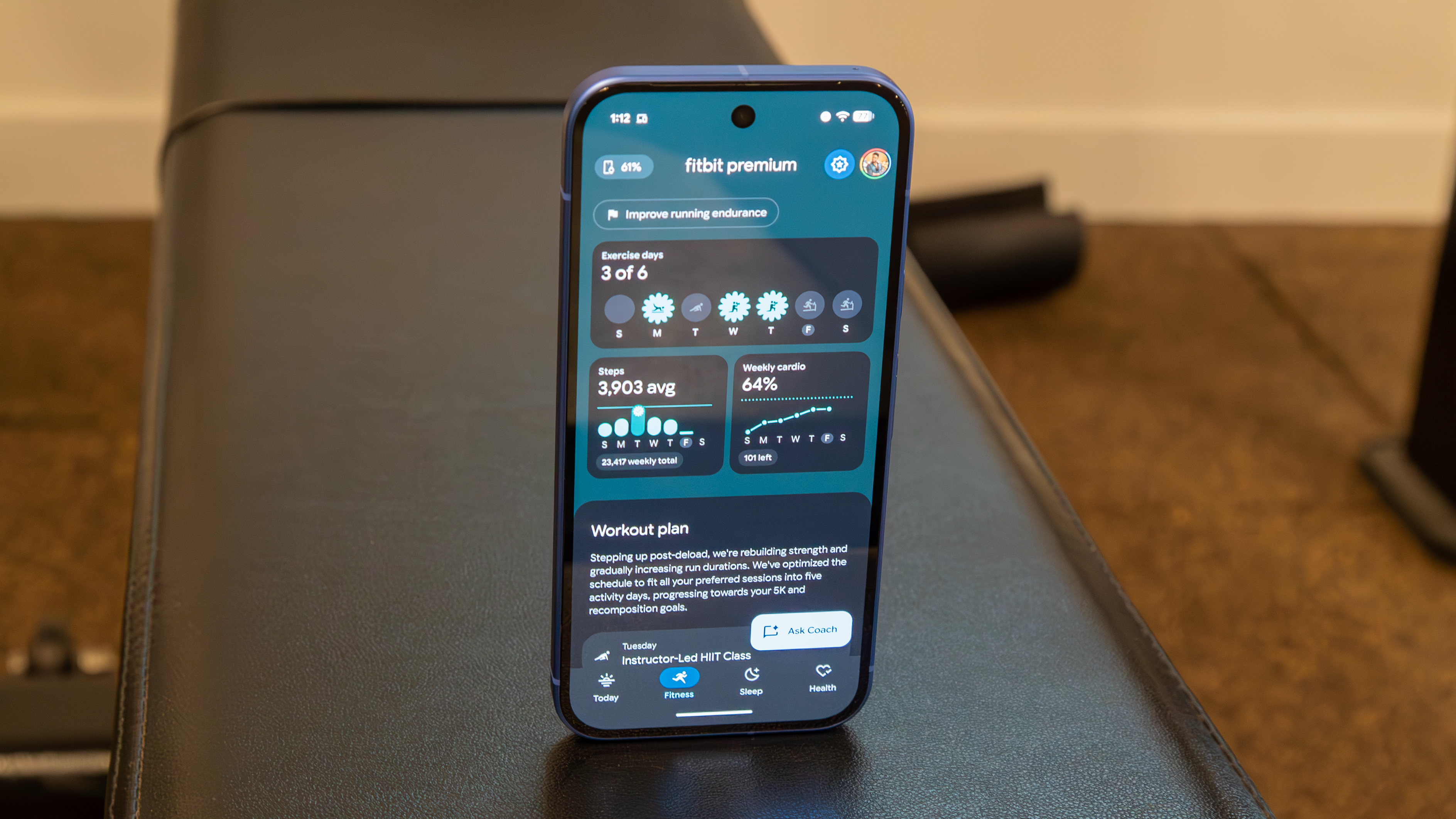What's the dark side to mobile gaming?
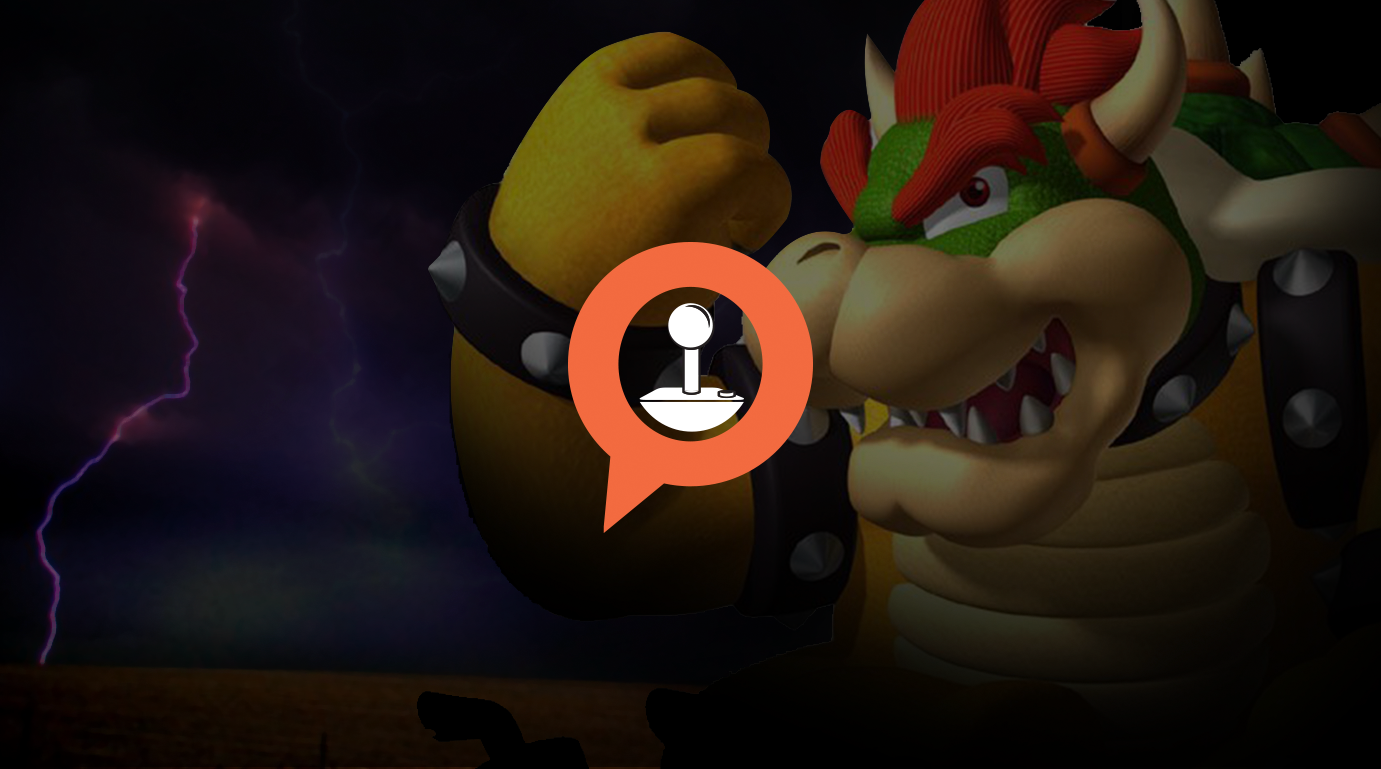
Presented by Blackberry
Talk Mobile Gaming
What's the dark side to mobile gaming?
Until a few years ago, mobile gaming was confined to Minesweeper, Solitaire, Brick Breaker, and a handful of strategy-style games like the classic Warfare Incorporated. The rise of iOS, Android, BlackBerry 10, and Windows Phone has changed that, bringing immersive, innovative, and addicting gameplay to our mobile devices.
Yet the renaissance of mobile gaming has brought with it a dark side -- sometimes the games are too immersive and too addicting. The virtual people in our lives can displace the real ones, if we let them. And sometimes, with the new freemium and premium payment models, that's exactly what the developers intend...
But how bad can it get? What's the dark side of mobile gaming?
Let's get the conversation started!
Get the latest news from Android Central, your trusted companion in the world of Android
By Kevin Michaluk, Rene Ritchie, Daniel Rubino & Phil Nickinson
Play
- Kevin: The assault on productivity

- Rene: Virtual friends for rent, cheap

- Daniel: You get what you paymium for

- Phil: Getting our big games on

Dark Side of Mobile Games
Articles navigation
- Assault on productivity
- Video: Georgia
- Virtual friends for rent
- You get what you paymium for
- Video: Anders Jeppsson
- Getting our big games on
- Conclusions
- Comments
- To top

Kevin Michaluk CrackBerry
The assault on productivity
When it comes to the type of apps that smartphone owners use most on their phone on a daily basis, games take the top spot (followed by weather apps, of course). In the United States alone, over 100 million people play mobile games. A lot. That's almost a third of the population.

According to a research compilation by Aequillibrium, the average smartphone owner spends 7.8 hours per month playing games on their phone. That's a full work day. The average iPhone owner spends almost double that time each month playing games on their phone. Do the math. We're talking over 800 million potential hours a month going to mobile gaming that did not used to.
14% admit to playing mobile games at work or school. That's 112 million hours a month of productivity lost.
The gameplay is happening everywhere - in bed, on the bus, in the bathroom, and also at the work desk and school desk. In a recent survey, 14% of respondents admitted to playing mobile games at their work and/or school desk. That's 112 million hours a month of productivity lost.
While the data above paints a pretty clear picture, the best example I can give of how mobile gaming can hurt productivity is a personal one. I have an addictive personality. It's easy for me to get hooked on a game. As a kid I spent a lot of time playing all of the Nintendo and Super Nintendo classics.
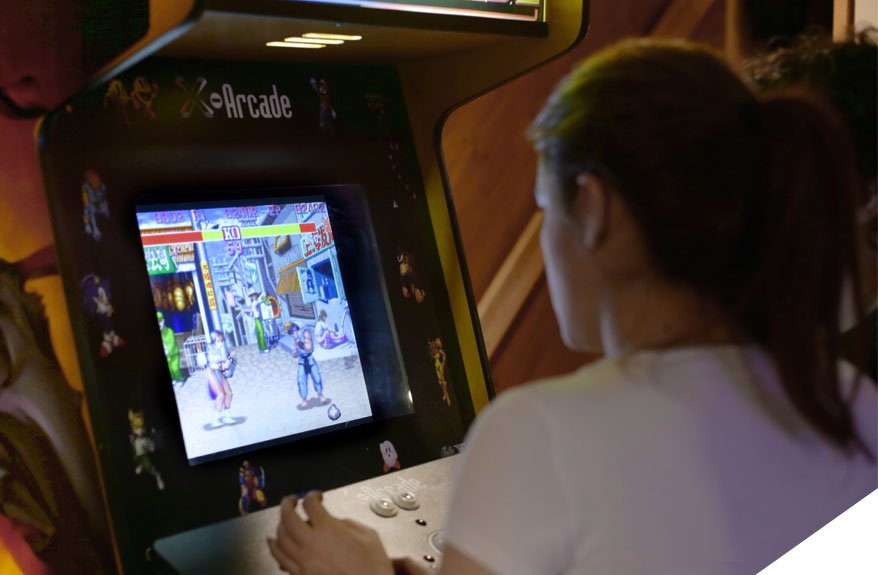
Encouraging gaming at work?
There's a divide between the 'old school' and 'new school' companies when it comes to leisure at work. The old model is one of distraction avoidance, while the new trusts the employee to manage distractions. Young companies, from Google to The Motley Fool, permit and provide for gaming at work. It comes down to the nature of the work - when the output ends up on online, social interaction and gaming during work hours is more likely to be permitted.
Studies have shown that spending the whole day focused on work at a desk actually decreases productivity. Whether getting up and walking around or knocking out a round of Real Racing on your phone is the better way to get that quick relaxation in before getting back to work is still up in the air.
If you dropped by my condo for a visit right now, you would find a Nintendo Wii, Xbox 360 and a PlayStation 3 all sitting below the big screen. You would also find they're sitting there unplugged, collecting dust. The only time they get used is at Christmas, when friends and family are over and we want to get our Mario Kart and Guitar Hero on. As busy as I am the rest of the year, I find it easy to ignore the console. Between the process of booting it up and loading a game, and the time you need to invest to get good at any sort of AAA title, it's just too much. I can ignore it.
Then mobile games happened. Now I can download a new game and have it installed in a minute. I can open it anytime, anywhere, with just a tap. And most mobile games required very little learning curve - within a few tries the game mechanics are understood and you're on your way to beating levels. For a guy like me with an addictive personality, it can and has proven to be a recipe for a productivity disaster.
What kind of idiot goes to the cabin for a weekend only to sit indoors on the couch and play an iPad game? This one.
When Angry Birds happened, I lost four days of my life playing it non-stop. When Sid Meier's Pirates - a childhood favorite I used to play on my Tandy - came to the iPad, I lost a weekend of vacation to it. Seriously. What kind of idiot goes to the cabin for a weekend only to sit indoors on the couch and play an iPad game? This one.
Over the past few years there have been dozens of mobile titles that have hooked me all the way in - Vector Runner, Aqualux, Fieldrunners, and Jetpack Joyride to name just a few. I love the games. I just hate that I once I get playing them I can't stop. And the worst part? Now I've become a sucker for in-app purchases that help me get through the game quicker. Not only does mobile gaming kill productivity - it gets expensive.
I know I'm not alone here.
Q:
How do you deal with the distractions of mobile gaming?
313


When given a choice between work, which causes me stress, and a game, which relaxes me, I'm usually going to choose the game.
- Georgia, Host of ZEN & TECH, Therapist
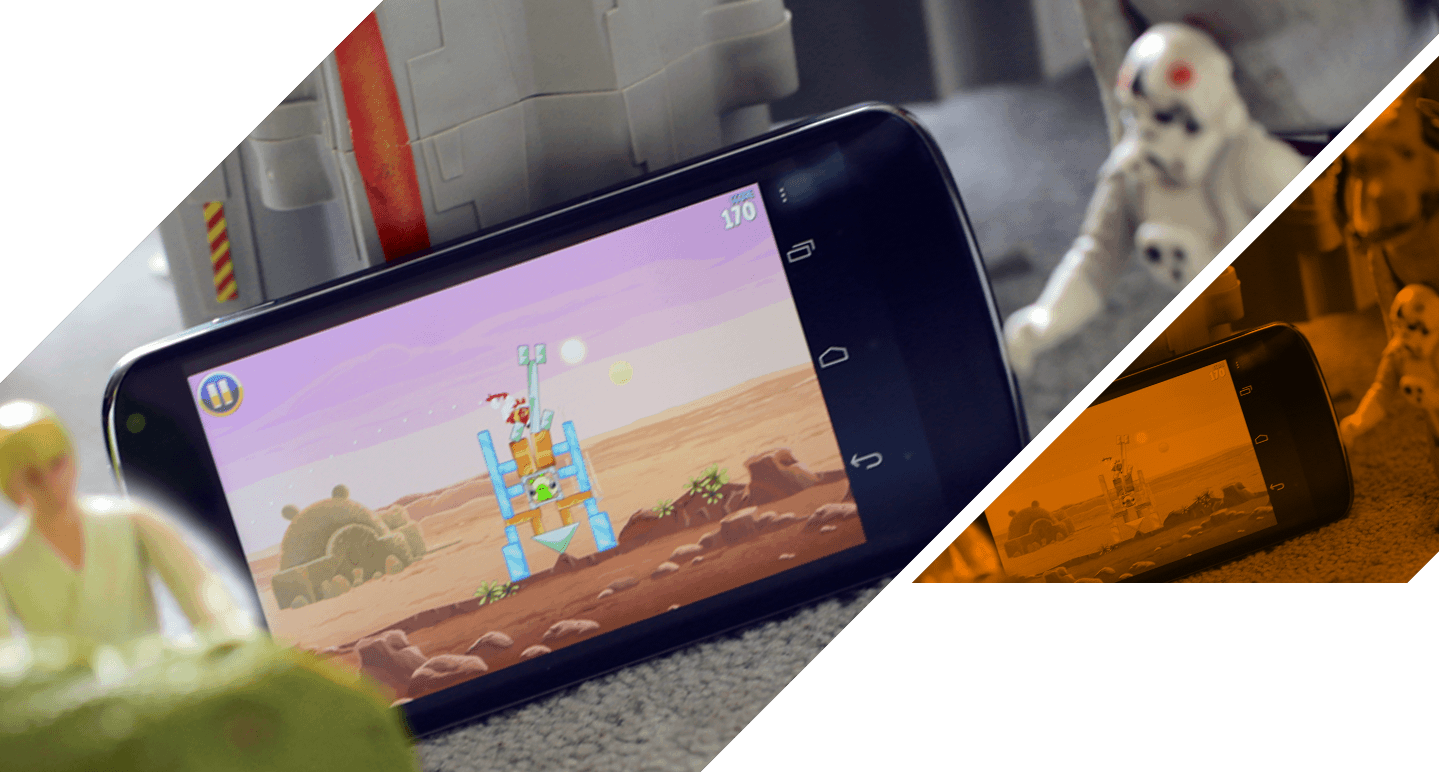

Rene Ritchie iMore
Virtual friends for rent, cheap
Time and attention are finite resources. What we spend on one thing cannot also be spent on another. We tend to value instant gratification and ego fulfillment. Sometimes we get that from a relationship, especially when it's new. Increasingly we get those things from video games. And when we do, our real world relationships can suffer.
Sometimes its a hard-core game like Call of Duty that sucks us in. Sometimes an MMO like World of Warcraft. Sometimes a casual game like Candy Crush. And sometimes it's a game that's been deliberately, borderline immorally, crafted specifically to take as much time, attention, and ultimately, money from us as possible. (Looking at you, Farm Casino Village Thing.)
When digital relationships and lives start to replace the real people in our real lives, it's a problem.
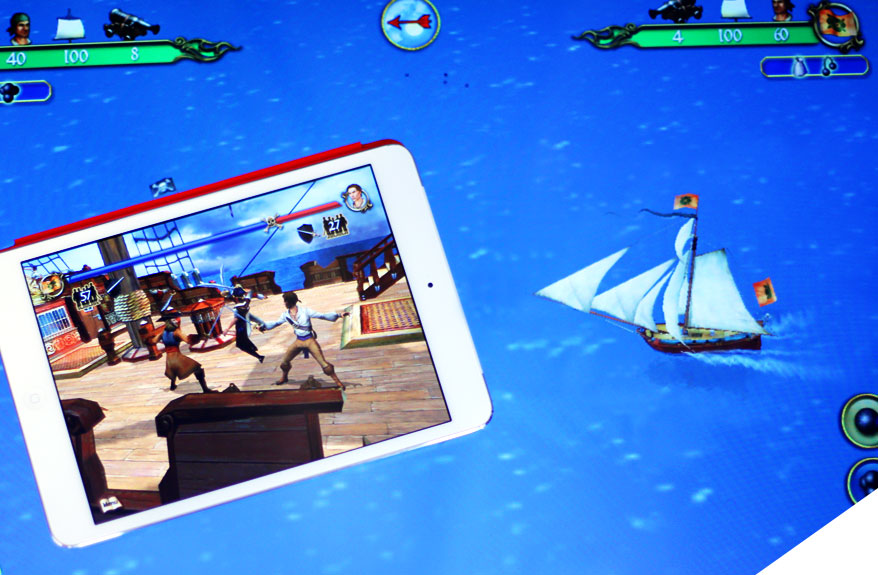
Gaming addiction?
Though rejected for inclusion in the Diagnostic and Statistical Manual of Mental Disorders (DSM), video game addiction is recognized by many psychologist for its compulsive and obsessive symptoms. The rise of MMOs over the past decade has only exacerbated cases of gaming addiction, with gamers substituting their real world relationships with virtual ones instead of supplementing them. In spite of the lack of clinical recognition, clinics in China, the Netherlands, the United States, and Canada have been established to help gamers deal with their addictions.
We can establish new and lasting relationships online, even in-game, and for prototypical "Big Bang" nerds for whom real life social interaction is awkward and off-putting, digital relationships can be a terrific boon. But when they interfere with existing, real-world relationships, when they start to replace the real people in our real lives, it can be a problem.
Just like any form of chemical addiction, the dopamine hit we get off gaming can be intense and can spiral out of control. The urge to finish just one more level, get just one more item, help just one more clan finish just one more quest, win just one more achievement, can slowly but surely take over our lives. The virtual euphoria we experience through it can cause us to stop seeking the real, if more challenging, euphoria we experience with those we love and should be cherishing.
At least with PCs and consoles, gaming addictions were relatively easy to spot. We sat in front of the screen and didn't move and eventually someone saw the trash and mold build up. With mobile gaming the addiction can be better hidden and even more insidious. It can follow us wherever we go, whenever we go there.
With mobile gaming the addiction can follow us wherever we go, whenever we go there.
Kevin said Sid Meier's Pirates almost cost him his relationship with his fianceée. He started playing it on his iPad and just couldn't stop. Not for their weekend getaway, not for their dinner reservations, not for the woman he loved and their carefully planned time together. And it's not just Kevin. We've all heard friends and family yell, "just one more minute!" Hell, we've probably all been the one yelling, "just one more minute!" and that doesn't include all of the times we've lost feeling in our lower extremities thanks to a smartphone-extended bathroom break. (You know you have, don't deny it.)
But when you're hurt, when you're sick, the game won't be there to pick you back up. It won't kiss you better. It won't hold you. Gaming will suck out all the time and attention you have, and more, but it won't ever, not ever, give any back. That's why we, as responsible individuals, have to set and self-enforce reasonable limits. We have to learn to put the games away and the damned devices down, and make sure we connect, and re-connect, with real people and the real world. And if we can't do it on our own, like with any addiction, we need to get help.
Gaming can and will ruin relationships, but the responsibility is and always will be on us. We have to let it. And that's ultimately what gives us the power to stop it.
Q:
Has mobile gaming impacted your personal relationships?
313


Daniel Rubino Windows Phone Central
You get what you paymium for
If there is a lightning rod of criticism for gaming today, it's the freemium/paymium models. Freemium is a method by which developers release games for free and recoup money via in-app purchases. Paymium is similar but takes it a step further: users pay for the game upfront and the game offers in-app purchases too.
The exact mechanics of "pay to play" varies from title to title and developer to developer. Most games don't force you to buy things in order to actually play the game. Indeed, you can often beat many of them without spending a cent. But the "premium" experience is reserved for those who fork over some money, literally "nickel and diming" you as you progress.
Playing on classic psychology, it's easier to pay a few dollars here and there instead of $5 upfront. When users play a free game that they enjoy, occasionally tossing in an extra dollar here or there to power up, or just speed things up, doesn't seem like much. Until you add up the bills. Much like interest on a loan, people often end up paying more (much more) than if they simply spent the $3-10 up-front for a premium game.
In-app purchases were not part of Infinity Blade at launch, but they came to account for nearly 44% of the game's revenue
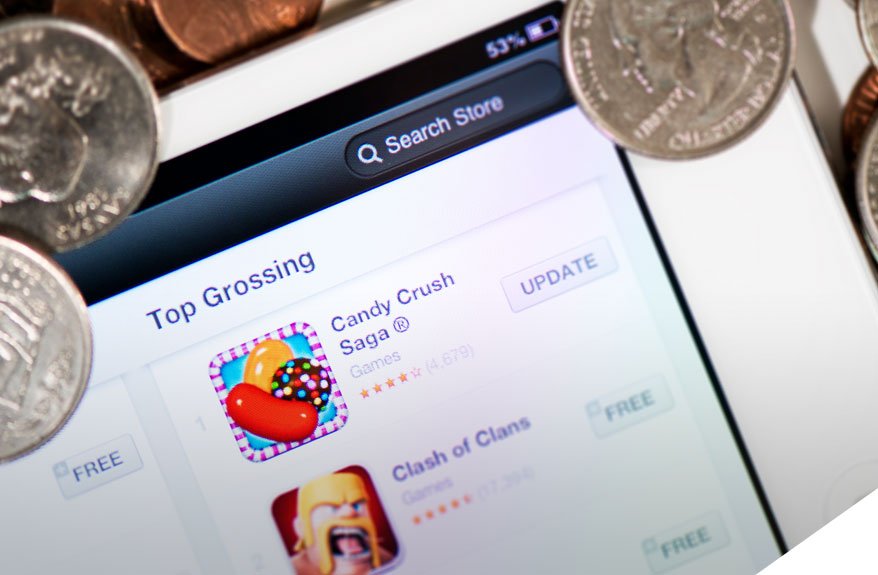
Pay to play?
Before the advent of in-app purchasing, the only ways for iPhone app developers to bring in revenue was by offering a free app with ads or by selling an app for a fixed upfront cost. iPhone OS 3.0 added in-app purchasing support, allowing developers to offer and charge for additional content after the initial purchase.
According to a recent report by Distimo, in-app purchasing has skyrocketed in the App Store; in February 2013, in-app purchases accounted for 76% of App Store revenue. While many developers have taken a 'freemium' approach, offering a free-to-play game with paid upgrades, the 'paymium' developers are the ones raking in the cash - according to Distimo the average revenue per download for freemium apps was $0.93, while paymium apps brought in $2.46 per user.
As reported a few years ago by Games Brief, popular titles like Infinity Blade charged users for the game and later offered optional in-app purchases. They were not part of the game at launch, but after their addition they came to account for nearly 44% of their revenue on that title out of an estimated $7.5 million.
For 2012, Distimo reported that in-app purchases accounted for nearly 76% of all revenue in the iOS App Store, and that number keeps going up.
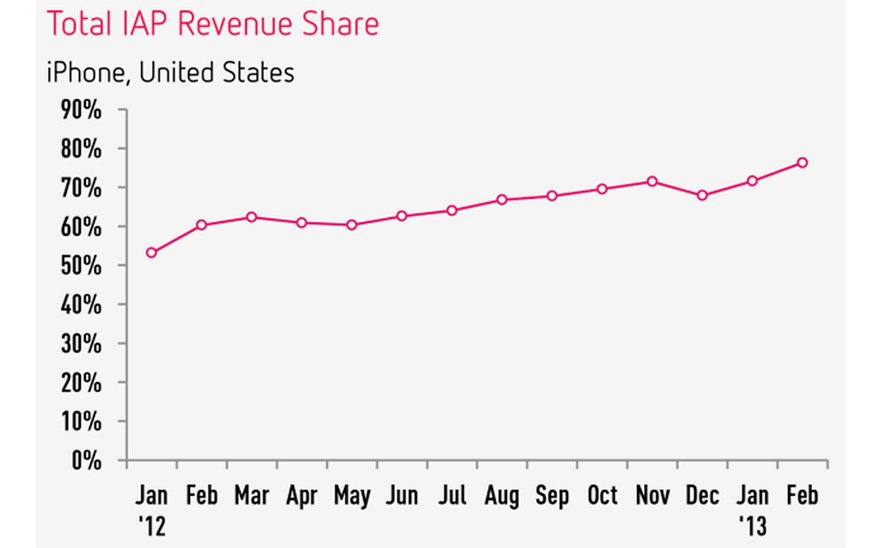
Anecdotally, I know I've dropped $5 or $10 for in-app purchases on games that I enjoy, like Dredd vs Zombies or Jetpack Joyride.
Indeed the freemium model often reminds me of donation-ware — a system that relies on an honor code, that if you like an app or game, you'll "buy the developer a beer" by sending them a few dollars as thaks for their work. Years ago, I experimented with this model when making skins for Windows Mobile. Frankly, I was shocked at how much money can roll in using that system, especially since people would have balked at paying for a skin upfront.
Once again, however, the analogy to interest on a loan: if you're not wise with your money, you may end up paying $30, $50, or more on one single game over a few months without even realizing it. A dollar here and a dollar there - it adds up. Contrast that with the general rule of $10 or less for full titles and you can see where such a system can be dangerous.
Personal reasonability becomes the focus on freemium/paymium games because, in theory, you can spend an endless amount. Worse, if a child gets ahold of a game with in-app purchses - and your password - and starts exhausting your credit card. A Microsoft-sponsored survey in the UK, reported by The Guardian projected that over £30 million a month is spent by children on apps and in-app purchases without their parent's knowledge. At least until the credit card bill arrives.
All that being said, there's something liberating about paying for a game only if you actually play and appreciate it.
Regardless of our inviduals opinions on this type revenue stream, the fact is these models stick around because they work.
Q:
How do you feel about freemium game models?
313
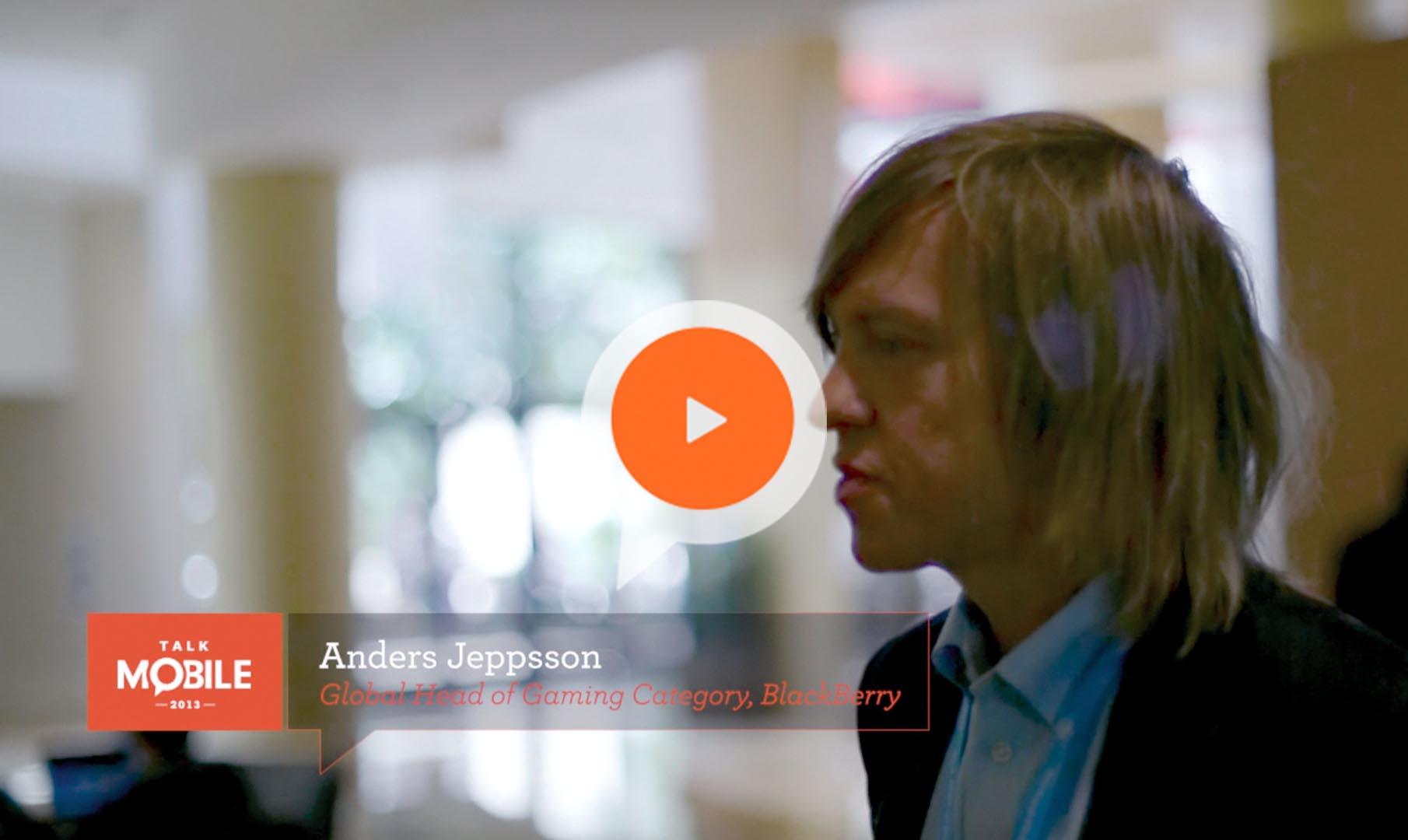

Everyone loves free, but I think there's still room for paid experiences that are premium.
- Anders Jeppsson, Head of Global Gaming Category, BlackBerry


Phil Nickinson Android Central
Getting our big games on
For every Angry Birds and Temple Run and Plants vs. Zombies, for every Modern Warfare and Need for Speed and N.O.V.A., there are hundreds if not thousands of throwaway games out there. The signal-to-noise ratio in app stores is still staggeringly bad. There are various ways to combat that, of course. The best is by prominently featuring the good apps and tweaking search algorithms to make sure the wheat gets separated from the chaff. Theoretically a more stringent approval process would combat this as well, but it's not so good in practice. Low-quality apps can, do, and always will slip through the cracks.
The signal-to-noise ratio in app stores is still staggeringly bad
And then there are instances in which copycat games almost have to be welcomed. Windows Phone and BlackBerry 10, being the new(er) kids on the block, have had to wait for big-name titles to make the leap. And in the meantime, any number of similarly-named titles fill their respective app stores, ready to fool unsuspecting and desperate customers. And Android and iOS are hardly immune, too. The big name app divide has a chilling effect on consumer purchases as well, which feeds into a visious cycle of customers not buying phones because developers aren't making apps because customers aren't buying phones.
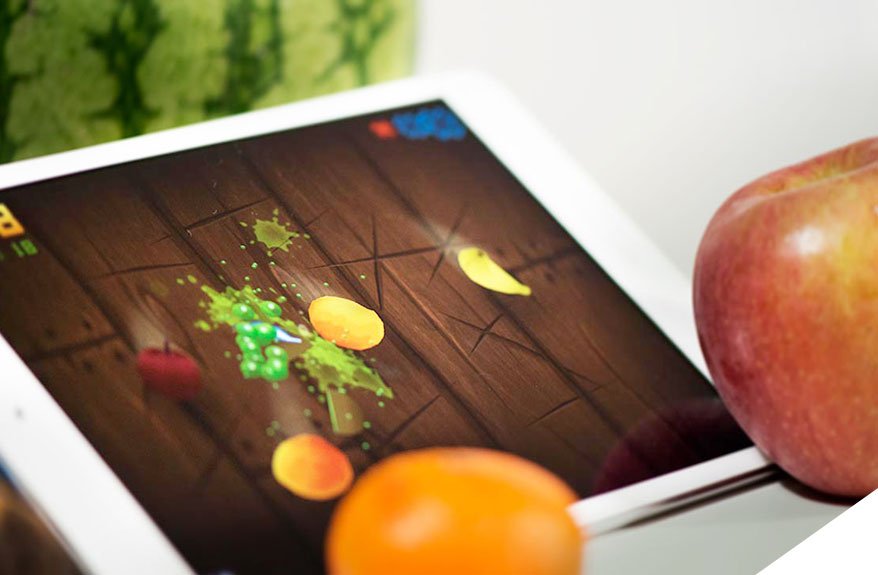
Top 5 paid games (May 2013)
Android: Minecraft - Pocket Edition, Need for Speed: Most Wanted, Plants vs. Zombies, Where's My Water?, Fruit Ninja
BlackBerry 10: Guess the word, Guess the icon, Samurai II: Vengeance, The Dark Knight Rises, Tiny Bird
iOS: Angry Birds, Fruit Ninja, Doodle Jump, Cut the Rope, Angry Birds Seasons
Windows Phone: Monster Burner, Angry Birds, Cut the Rope Exp., iStunt 2, Gravity Guy
The classic example, of course, is Angry Farm on BlackBerry. Rovio won't bring Angry Birds to BlackBerry. Fine. A ripoff gets super popular in the meantime. And because you gotta dance with the one who brung ya, that ripoff game gets the headlines -- and thus the downloads -- but only until an official version is released.
To date, Angry Farm on BlackBerry has sold more than 100,000 copies, while Angry Birds has made precisely zero dollars from legacy BlackBerry customers. BB10 and PlayBook are another story...
Whether that actually hurts the bigger titles depends on a number of things. But, as usually is the case, it often comes down to money. Big-name software houses with big-name titles under their belts also usually have big-name marketing budgets. That along with the work the individual app stores do to ensure quality content rises to the top generally ensures that the "good" games flourish while the bargain basement ripoffs and one-off quick hits disappear.
Q:
What's your trick for finding great games?
313
Conclusion
As awesome as it is to have our favorite games with us wherever we go, there's definitely a darkside. Each of us has the next level of Angry Birds waiting in our pocket. Or maybe it's our turn on Letterpress. Ingress portal battles are waging without us. Kinectimals need to be fed! And there are a thousand other games sitting in our phone's application store, just waiting to be played...
And that constant, ready-to-play presence affects our productivity and our relationships. In the old days we gathered together around the table, rolled the dice and played the cards. Even the early days of consoles had us grouped together in one living room, on one couch. Now gaming is online, especially mobile gaming. We've left our family and friends and homes and gone out, online.
Likewise, we no longer pay for our games upfront. Forget $50 console games or $10 mobile ones. Everything is free or cheap, and the money is made on the upsell. Sometimes it's well done, sometimes it feels downright malicious. That race to zero has hurt the quality of the gameplay, and these free or next-to-no-cost games have made it tough if not impossible for the vaunted "AAA" titles - blockbusters that require big sales to ever hope to recoup their costs -- to get going on mobile.
But do these dark clouds overshadow the otherwise massive silver lining that is mobile gaming? What are your concerns, and what are you doing to keep from the dark side of gaming, and stick to the light?

